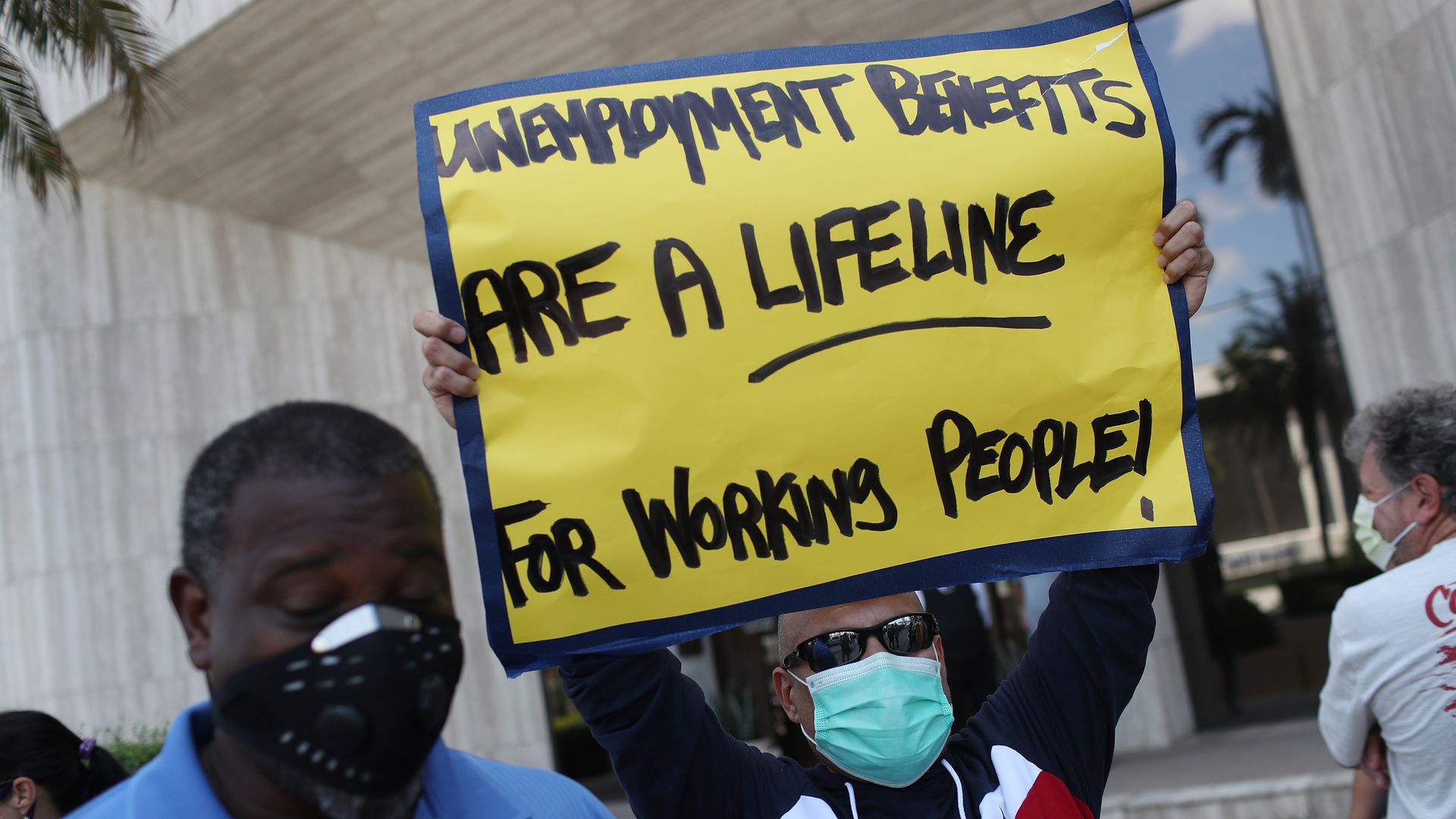Updated May 13, 2021 - Economy
The states ending federal pandemic unemployment benefits early
Add Axios as your preferred source to
see more of our stories on Google.

Protesters demand senators support the continuation of unemployment benefits on July 16, 2020 in Miami Springs, Florida. Photo: Joe Raedle/Getty Images
